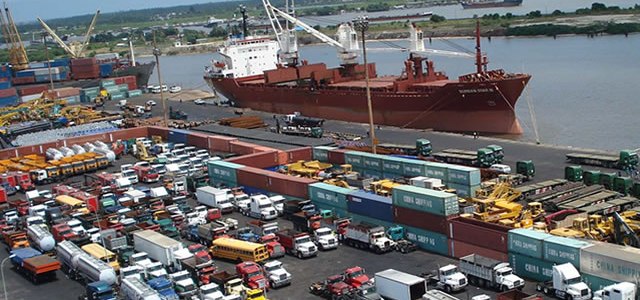Daily Watch – FG plans runs into IMF pothole, Nigeria slips five places in ease of business table
4th October 2016

- The Nigerian government’s plans to borrow billions of dollars from the World Bank and other international lenders to plug its budget deficit has run into delays amid a stalemate over reforms, jeopardising the country’s ability to finance its budget. Even as the World Bank said it was “continuing its discussions” with Nigeria “on a range of critical reforms for restoring macroeconomic resilience” and “would determine, with the government, the most appropriate instrument to support the reform programme,” it did not give a timeline for those discussions, which are expected to continue on the sidelines of the World Bank and IMF meetings in Washington. Nigeria needs to “reduce domestic and external imbalances” and provide “greater clarity” on its macroeconomic policy direction, Gene Leon, the IMF’s mission chief for Nigeria, said in a statement to the Financial Times. It added that the World Bank had said it would not be able to disburse any loans until 2017 at the earliest because it “has not yet received the macroeconomic framework.”
- The naira may be showing signs of strength against the U.S. dollar as it closed at a record high of ₦460/$, gaining ₦30 or 6.12 percent compared a ₦490/$ last week. At the parallel market, the local currency gained ₦15 as it closed at ₦475/$ on Friday, representing a 3.06 percent increase compared with N490/$ on Thursday last week. The naira’s appreciation is attributed to the resumption of dollar sales to end users by BDC operators. BusinessDay reports that Travelex, a global foreign exchange dealer, sold dollar to 820 BDCs last week, a move which helped shore up the naira. According to Aminu Gwadabe, acting president of Association of Bureaux De Change Operators of Nigeria, the naira will further strengthen to ₦420 if the dollar is distributed to the more than 3,000 BDCs across the country. He says in the next couple of weeks 1,700 BDCs will receive dollar sales from Travelex.
- The Nigerian economy is one of the world’s least competitive, and currently ranks 127th out of 138 economies globally, a 2016-2017 report by the World Economic Forum, says. In the 2015-2016 edition of the Global Competitive Index, Nigeria ranked 124th out of 140 countries. The latest ranking means the country slipped five places when measured by the relative number of countries each year. In this year’s ranking, Mauritius, which is placed at 45th position, takes the lead among sub-Saharan African countries, followed by South Africa and Rwanda, ranked 47th and 52nd, respectively. Switzerland, Singapore and the United States remain the three world’s most competitive economies. The WEF calculates the Global Competitiveness Index using a combination of 114 indicators “that capture concept that matter for productivity and long-term prosperity. These indicators are grouped into 12 pillars – institutions, infrastructure, macroeconomic environment, health and primary education, higher education and training, goods market efficiency, labour market efficiency, financial market development, technological readiness, market size, business sophistication, and innovation.”
- Over 740 police officers have accessed mortgage financing worth ₦3.4 billion from the Federal Mortgage Bank of Nigeria, according to its Acting Managing Director/Chief Executive, Richard Esin. He said that the loan applications for 221 others through the Nigeria Police Mortgage Bank are at various stages of appraisal by the FMBN. Esin noted that refund applications for 964 police retirees totalling ₦73 million were at the payment stage. He further stated that the bank was working towards partnering with foreign developers willing to build affordable houses for low-income groups, in which the FMBN would provide mortgage finance for interested contributors.
- HarvestPlus has announced a scheme in collaboration with with five seed production companies in Kaduna to produce 1,000 metric tonnes of seeds for distribution to farmers during the next planting season. Speaking at a media briefing at Ibadan at the weekend, Country Manager Paul Ilona said there was a need to develop a strong seed distribution network to ensure that every Nigerian farmer interested in planting nutritious varieties had access to good seedlings. He also said his company was working with 16 partners, including the Ministries of Agriculture, Health, Trade and Commerce and Education in the campaign to address the ongoing malnutrition crisis in parts of the country.